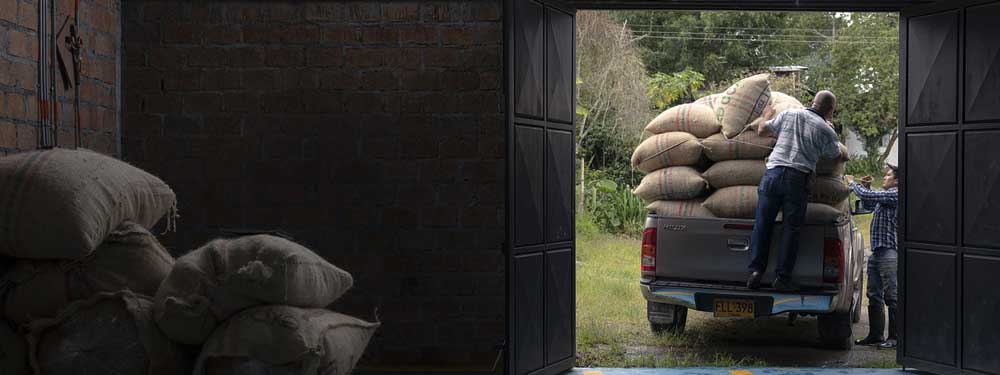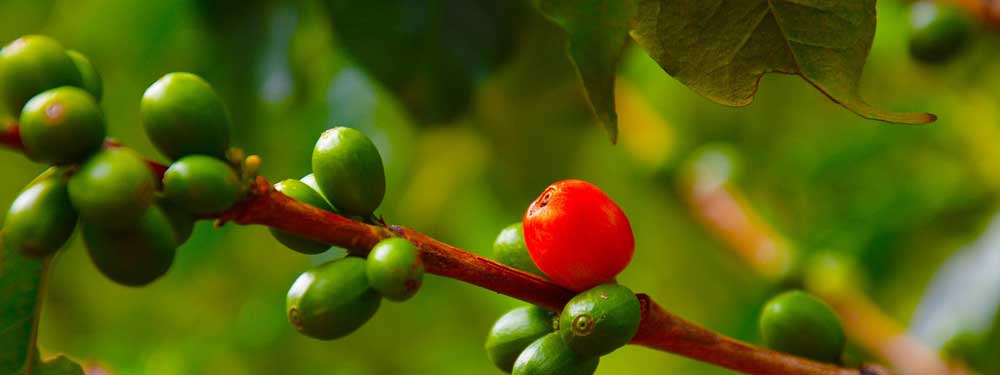A Global Brew with a Global Impact
Coffee is more than a beverage—it’s a global connector. With over two billion cups consumed each day, coffee supports millions of farmers, exporters, and small businesses around the world. But as climate change, deforestation, and unsustainable agricultural practices threaten the delicate ecosystems where coffee grows best, the industry faces serious challenges. Sustainably farming coffee is no longer optional—it’s essential.
By embracing sustainable practices, the coffee industry can preserve the environment, ensure fair livelihoods for farmers, and maintain the quality and availability of coffee for future generations. Every sip of sustainably farmed coffee supports a better world—one cup at a time.

Environmental Sustainability: Protecting the Ecosystems Behind the Beans
Coffee plants thrive in delicate ecosystems that are particularly vulnerable to deforestation, soil erosion, and changing climate conditions. Traditional farming methods often involve clearing forests to expand plantations, using synthetic fertilizers, and overusing water resources. These practices degrade soil health, reduce biodiversity, and release significant carbon emissions.
Sustainable coffee farming, however, takes a different path. Shade-grown coffee, agroforestry, and organic cultivation methods help preserve biodiversity, reduce water usage, and limit chemical runoff. Farms that follow sustainable guidelines plant native trees, maintain forest cover, and use composting or natural pest control to enrich the soil and protect pollinators.
By protecting the environment, sustainable farms not only ensure the long-term viability of coffee crops but also safeguard the planet’s health. Consumers who choose sustainably sourced coffee contribute to this environmental stewardship with every cup.

Economic Fairness: Supporting Farmers and Communities
Sustainable farming is not only about the environment—it’s also about people. Most of the world’s coffee is grown by smallholder farmers who often face low wages, market instability, and lack of access to resources. Without fair compensation and support, farmers are unable to invest in better equipment, education, or more sustainable methods.
Sustainably certified coffee programs—such as Fair Trade, Rainforest Alliance, and UTZ—establish minimum price guarantees and offer premiums that go directly to farming communities. These programs ensure that farmers receive a livable wage and are empowered to improve their operations, send their children to school, and reinvest in their communities.
Moreover, sustainability efforts often include training programs that help farmers adapt to climate changes, improve crop yields, and reduce environmental impact. A sustainable approach creates a more equitable coffee economy, one where farmers can thrive as essential partners in the global coffee supply chain.
Climate Change Resilience: Adapting for a Changing Future
Coffee farming is extremely sensitive to climate change. Rising temperatures, unpredictable rainfall, and the spread of pests and diseases like coffee leaf rust are making it harder to produce high-quality beans in traditional growing regions. Without immediate action, experts predict that up to half of the land currently used for coffee farming could become unsuitable by 2050.
Sustainable farming practices help coffee growers become more resilient to these changes. By focusing on soil health, water conservation, crop diversity, and climate-adaptive plant varieties, sustainable farms are better equipped to handle the evolving challenges of climate instability.
Research and innovation also play a vital role. Many sustainability programs invest in developing drought-resistant coffee plants, smarter irrigation systems, and early warning systems for pests. Through these efforts, coffee farming becomes more adaptive and future-proof—ensuring a steady supply of quality coffee even in uncertain times.

Consumer Impact: How Your Choices Make a Difference
Many coffee drinkers don’t realize the power they hold in shaping the industry. Every time you choose sustainably sourced coffee, you support farming practices that prioritize the planet, people, and long-term quality. Consumer demand for ethically grown coffee has already sparked widespread changes in how coffee is grown, packaged, and marketed.
Retailers, cafes, and catering services that emphasize sustainable sourcing create a ripple effect. When businesses commit to ethical coffee, they influence the supply chain and push larger producers to adopt more responsible practices. These commitments often extend to other areas as well—such as compostable cups, energy-efficient brewing equipment, and zero-waste initiatives.
Education also matters. Helping consumers understand the story behind their coffee builds deeper appreciation and encourages more conscious purchasing. Choosing sustainability isn’t just a trend—it’s a movement with real, measurable impact.
Brewing a Better Future—Together
Sustainably farming coffee is about more than growing a crop—it’s about nurturing ecosystems, empowering communities, and protecting the future of one of the world’s most beloved beverages. As climate challenges intensify and global demand rises, the importance of ethical, environmentally responsible coffee farming becomes even more urgent.
From bean to cup, each step of the journey matters. By supporting sustainable coffee, consumers, businesses, and farmers become part of a global effort to preserve quality, promote fairness, and protect the environment.
Every cup of coffee tells a story. With sustainable farming, it’s a story worth sharing—and one worth savoring.





